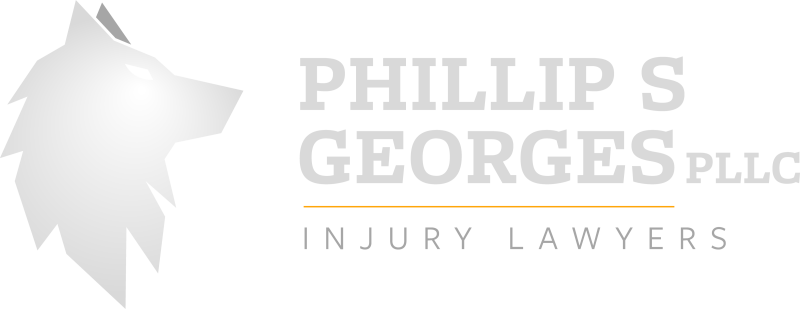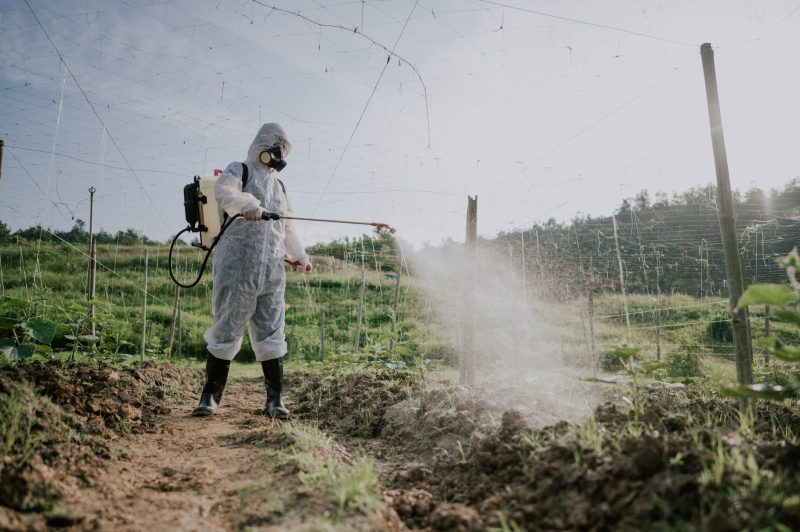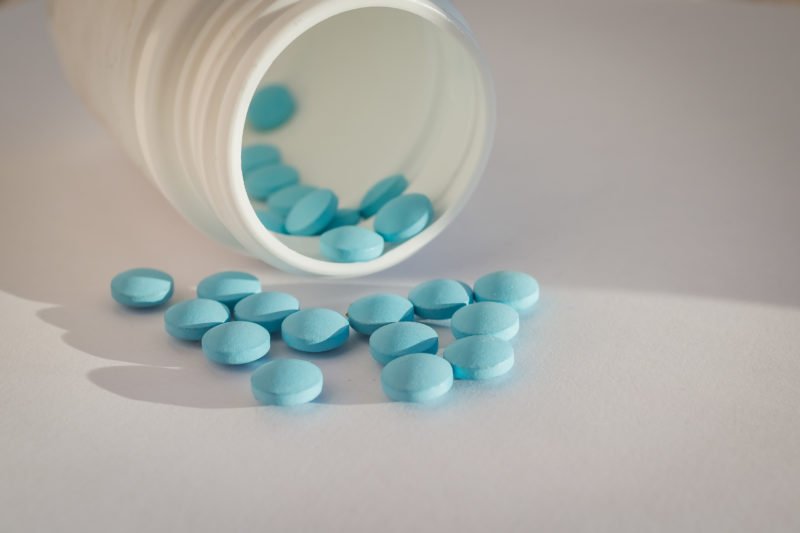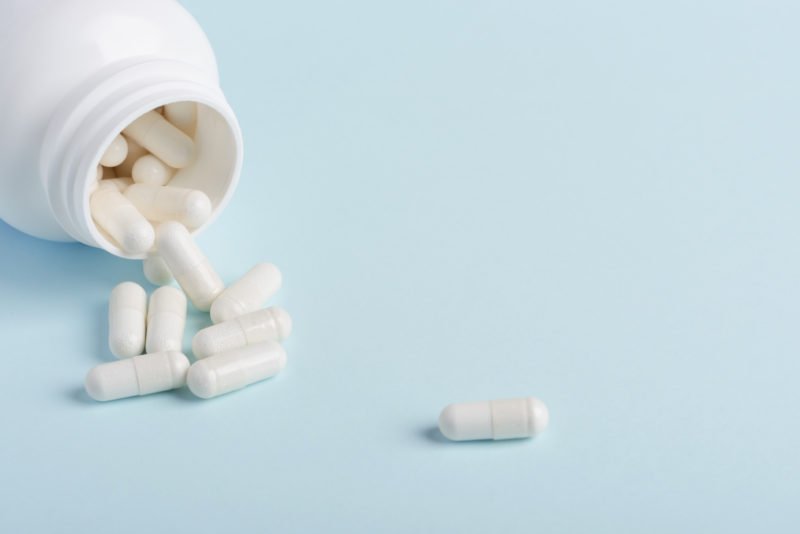If you’ve been injured by a dangerous product, you need an experienced Nashville product liability attorney to help you navigate the complexities of product liability law. At Phillip S. Georges, PLLC, we know how to hold manufacturers, distributors, and retailers accountable for defective products that cause harm. Whether you’re dealing with a manufacturing defect, design flaw, or failure to warn, our dedicated team is here to ensure you receive the compensation you may deserve.

Were you injured by a dangerous or defective product?
If you’ve been harmed by a dangerous or defective product, don’t wait to seek justice. Our experienced Nashville product liability lawyers are ready to help you navigate the legal process and secure the compensation you deserve. Contact us today for a free case review and let us fight for your rights. Your recovery and peace of mind are our top priorities.
Getting Help Is Easy
All you have to do is contact The Wolf Pack® for the help you need in seeking the compensation you deserve. We’ll take care of the rest.
We Will Fight For You
Going up against large corporations can seem impossible, but you can have a team of fierce litigators on your side with The Wolf Pack®.
No Fees Unless You Win
Getting a case evaluation is free and requires no obligation. In fact, you won’t owe anything unless we win your case.
Put an Award Winning Firm on Your Side!
Tennessee Product Liability Laws and Regulations
There are certain laws and regulations relevant to product liability that are important to know when navigating your own product liability claim. Below are the most relevant and important laws to know.
The TPLA is the primary statute governing product liability actions in Tennessee. It defines key terms, sets forth the grounds for liability, and establishes the framework for product liability claims.
The TPLA sets a 1-year statute of limitations for filing product liability claims, starting from the date the injury was discovered or should have been discovered.
Tennessee has a ten-year statute of repose for product liability claims, meaning claims must be brought within ten years from the date the product was first purchased for use or consumption, regardless of when the injury occurred.
- Strict Liability: Under Tennessee law, manufacturers, distributors, and sellers can be held strictly liable for injuries caused by defective products, regardless of whether they were negligent.
- Types of Defects: Liability can arise from manufacturing defects, design defects, and failure to provide adequate warnings or instructions.
Tennessee follows a modified comparative fault rule. This means that a plaintiff’s recovery may be reduced by their percentage of fault in causing the injury. However, if the plaintiff is found to be 50% or more at fault, they are barred from recovering any damages.
Tennessee courts apply the economic loss doctrine, which generally prevents recovery of purely economic losses through tort actions, including product liability claims. Economic losses must typically be pursued through breach of warranty claims.
- Express and Implied Warranties: Product liability claims can be based on the breach of express or implied warranties. Express warranties are specific promises made by the seller, while implied warranties include the warranty of merchantability and the warranty of fitness for a particular purpose.
- Privity Requirement: Tennessee law generally requires privity of contract for breach of warranty claims, meaning the plaintiff must have purchased the product directly from the defendant.
In certain cases, plaintiffs may be awarded punitive damages if they can prove that the defendant acted with intentional, fraudulent, malicious, or reckless conduct. Tennessee law caps punitive damages at two times the amount of compensatory damages or $500,000, whichever is greater.
Defendants in product liability cases can raise various defenses, including:
- Assumption of Risk: If the plaintiff knowingly and voluntarily assumed the risk associated with the product.
- Misuse of Product: If the plaintiff used the product in a way not intended or foreseeable by the manufacturer.
- State of the Art Defense: If the product conformed to the state of the art or scientific knowledge available at the time of manufacture.
This Act prohibits unfair or deceptive acts or practices in the conduct of any trade or commerce. While not specifically focused on product liability, the TCPA can be relevant in cases involving deceptive marketing or misrepresentation of products.
Common Types of Product Liability Cases
Product liability cases generally fall into three main categories: manufacturing defects, design defects, and failure to warn (marketing defects). Here are the most common types of product liability cases within these categories:
1. Manufacturing Defects
Manufacturing defects occur when a product deviates from its intended design due to an error in the manufacturing process. These defects make the product more dangerous than consumers reasonably expect.
Common examples of manufacturing defects:
- Automotive Parts: Faulty brakes, airbags, or tires that fail to function properly.
- Medical Devices: Defective pacemakers, hip replacements, or surgical instruments.
- Household Appliances: Malfunctioning kitchen appliances, such as toasters or microwaves, that cause fires or injuries.
2. Design Defects
Design defects exist when a product is inherently unsafe due to its design, even if it is manufactured correctly. These defects affect all products of the same design.
Common examples of design defects:
- Children’s Toys: Toys with small, detachable parts that pose a choking hazard.
- Automobiles: Vehicles prone to rollover accidents due to a high center of gravity.
- Tools and Equipment: Power tools without proper safety guards or mechanisms.
3. Failure to Warn (Marketing Defects)
Failure to warn defects occur when a manufacturer does not provide adequate warnings or instructions about the product’s proper use and potential dangers. This includes misleading advertising.
Common examples of “failure to warn”:
- Pharmaceuticals: Medications without sufficient warnings about side effects or interactions with other drugs.
- Cleaning Products: Household chemicals without proper usage instructions or hazard warnings.
- Electronics: Devices that lack instructions on safe operation, leading to electrical shocks or burns.
Specific Examples of Common Product Liability Cases
Some product liability cases are far more common than others. These cases are typically referred to as “mass torts,” which means many people have suffered some type of injury from a specific product. If you were injured by a product with a mass tort lawsuit, there’s a higher chance that you have a valid case and a right to compensation.
Understanding the Product Liability Legal Process
Navigating the product liability legal process can be complex and daunting. Here’s a step-by-step guide to help you understand what to expect when pursuing a product liability claim with our lawyers.
1. Free Initial Consultation
What to Expect: During the initial consultation, you will meet with one of our Nashville personal injury lawyers to discuss the details of your case. This meeting helps the lawyer understand the nature of the defect, the injuries sustained, and the potential for a successful claim.
Documents to Bring: Medical records, purchase receipts, photographs of the defective product and injuries, and any communication with the manufacturer or seller.
2. Investigation – Gathering Evidence
Your lawyer will handle the investigation and evidence collection to support your claim.
The investigation may include examining the defective product, reviewing manufacturing records, consulting with experts, and more.
3. Filing the Claim
Your lawyer will draft and file a legal complaint outlining the details of your case, the defect, and the damages you seek. This document is submitted to the appropriate court. The complaint will name the manufacturer, distributor, and any other parties involved in bringing the defective product to market.
4. Pre-Trial Discovery
Both sides will exchange information and evidence through the discovery process. This includes written questions (interrogatories), document requests, and depositions (sworn testimony taken outside of court).
5. Settlement Negotiations
Negotiation: Before going to trial, both parties may attempt to reach a settlement. Your lawyer will negotiate on your behalf to secure a fair compensation amount.
Mediation: In some cases, a neutral third party (mediator) may assist in facilitating settlement discussions.
6. Trial (If Needed)
Court Proceedings: If a settlement cannot be reached, the case will proceed to trial. Both sides will present their evidence, call witnesses, and make arguments before a judge or jury.
Burden of Proof: Your lawyer must prove that the product was defective, the defect caused your injury, and you suffered damages as a result.
7. Verdict and Judgment
Verdict: After hearing the evidence, the judge or jury will render a verdict. If the verdict is in your favor, the court will award damages to compensate for your injuries.
Appeals: Either party may appeal the decision if they believe there was a legal error that affected the outcome.
8. Post-Trial Matters – Collecting Damages
If you win the case, your lawyer will help you collect the awarded damages from the defendant. This may involve working with the defendant’s insurance company or pursuing additional legal action if the defendant fails to pay.
Frequently Asked Questions
The common types of product defects include:
- Manufacturing Defects: Errors that occur during the production process, making a product unsafe.
- Design Defects: Flaws in the product’s design that make it inherently dangerous.
- Failure to Warn (Marketing Defects): Inadequate instructions or warnings about the product’s proper use and potential dangers.
Liable parties can include:
- Manufacturers: Companies that produce the product.
- Distributors: Businesses that supply the product to retailers.
- Retailers: Stores that sell the product to consumers.
To succeed in a product liability case, you generally need to prove:
- The product was defective.
- The defect existed when the product left the defendant’s control.
- The defect caused your injury.
- You were using the product as intended or in a reasonably foreseeable way.
You may be able to recover:
- Medical Expenses: Costs for treating injuries caused by the defective product.
- Lost Wages: Compensation for income lost due to inability to work.
- Pain and Suffering: Compensation for physical pain and emotional distress.
- Property Damage: Reimbursement for any property damaged by the defective product.
- Punitive Damages: In cases of egregious conduct, additional damages to punish the defendant.
In Tennessee, the statute of limitations for product liability cases is generally 1 year from the date you discovered or should have discovered the injury. Additionally, there is a 10-year statute of repose, meaning you must file within 10 years from the date the product was first purchased.
Yes, if possible, you should keep the defective product as evidence. Do not attempt to repair it. Preserving the product in its defective state is crucial for your case.
Yes, Tennessee follows a modified comparative fault rule. You can still recover damages as long as you are less than 50% at fault. However, your compensation will be reduced by your percentage of fault.
- Seek Medical Attention: Prioritize your health and safety.
- Preserve the Product: Keep the product in its current state.
- Document Everything: Take photos, save receipts, and gather any related documents.
- Consult a Lawyer: Contact a product liability lawyer to evaluate your case and guide you through the legal process.
If the product was used by someone else and caused your injury, you might still have a claim. The critical factors are whether the product was defective and if the injury was foreseeable.
Yes, a product recall does not eliminate your right to file a claim. In fact, a recall can strengthen your case by demonstrating that the product was acknowledged as defective by the manufacturer.
While general product liability laws apply to all products, certain types of products, like medical devices, pharmaceuticals, and automotive parts, may be subject to additional regulations and standards. An experienced lawyer can help navigate these specific laws.
Yes, if multiple people have been harmed by the same defective product, you may be able to join a class action lawsuit. This can provide an efficient way to pursue claims against large manufacturers or corporations.
A product liability lawyer can:
- Evaluate your case and determine if you have a valid claim.
- Gather and preserve evidence, including expert testimony.
- Navigate the legal process and handle all filings and negotiations.
- Represent you in court if necessary to secure fair compensation.















